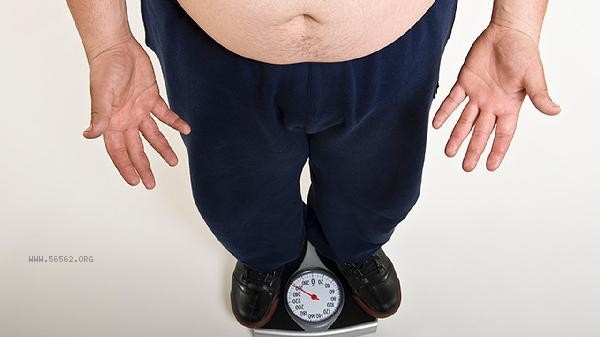During the weight loss period, feeling uncomfortable from hunger at night can be alleviated by adjusting the diet structure, choosing low calorie foods, dispersing eating time, replenishing water, and moderate exercise. Hunger is usually caused by excessive calorie deficit, imbalanced diet, blood sugar fluctuations, lack of sleep, psychological factors, and other reasons.

1. Adjusting dietary structure
Increasing the intake of protein and dietary fiber throughout the day can help prolong satiety. Protein digestion is slow and can reduce gastric emptying rate. It is recommended to choose high-quality protein such as chicken breast, eggs, and low-fat dairy products. Dietary fiber can absorb water, expand and fill the stomach. Oats, broccoli, chia seeds and other foods are rich in soluble dietary fiber, which can be appropriately increased in proportion during dinner. Avoid a high proportion of refined carbohydrates that can cause rapid fluctuations in blood sugar.
2. Choose low calorie foods
When hungry at night, eat vegetables with high water content such as cucumbers, tomatoes, celery, or choose low calorie high protein foods such as sugar free yogurt and boiled eggs. Kelp, konjac and other nearly zero calorie foods can provide chewing satisfaction. Pay attention to controlling the intake of nut based foods, as they are nutritious but have a high calorie density.
3. Divide eating time
Divide dinner into two meals, with an interval of about two hours. The first meal is mainly composed of vegetables and protein, and the second time is supplemented with a small amount of compound carbohydrates. Adopting a small quantity multi meal mode, 5-6 meals per day can maintain stable blood sugar levels. Complete the last meal three hours before bedtime to avoid digestive activity affecting sleep quality.

4. Supplement water
Hunger may be confused with thirst, drinking warm water or light tea can temporarily relieve discomfort. Beverages such as chamomile tea that do not contain caffeine can help relax the nerves. Ensure sufficient water intake every day, as dehydration can exacerbate the illusion of hunger. Avoid sugary drinks and alcohol, as they can stimulate appetite and increase extra calorie intake.
5. Moderate Exercise
Engaging in mild aerobic exercise such as walking or yoga in the evening can shift attention and alleviate psychological eating desires. After exercise, an increase in body temperature can produce a physiological response similar to feeling full. Avoid intense exercise before bedtime that can cause excitement and affect sleep rhythm. Establishing a regular daily routine helps regulate the balance of ghrelin and leptin secretion. Nighttime hunger is a common phenomenon during weight loss, and it is necessary to distinguish between physiological hunger and psychological appetite. Long term excessive dieting may lead to a decrease in basal metabolism, and it is recommended to adopt a gradual calorie control strategy. Keep a food diary to record the time and causes of hunger, and consult a nutritionist to adjust the plan if necessary. Ensure daily sleep time, as insufficient sleep can stimulate the secretion of ghrelin. If accompanied by symptoms of low blood sugar such as dizziness and palpitations, it is necessary to promptly supplement with an appropriate amount of carbohydrates and re evaluate the safety of the weight loss plan.










Comments (0)
Leave a Comment
No comments yet
Be the first to share your thoughts!